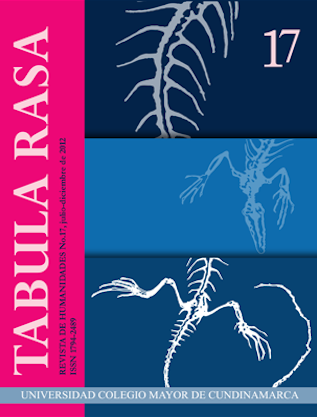Review.¿ Where is Africa?
Reseña. ¿Dónde está África?
Show authors biography
Since Hegel, in his Lessons on the philosophy of universal history (1830), pointed to Africa as a "closed land," it seems that the continent is still being read under this imaginary. This is evidenced by various arguments that circulate in the academic scene and, especially, in the media about this African "tragedy", then, ad nauseum, insist on isolation and economic and political "marginalization" in relation to the world system, without forgetting here the "primitivism" to which their socio-cultural practices are associated. The ungovernability resulting from the "failure" of Western promises: State, sovereignty and democracy also complete the picture. From this point of view, Africans and Africans would be unable to maneuver their fate, but they are at the same time responsible for the future of their history. Recent evidence, perhaps the most pathetic, that Western discourses on the "black" continent and its inhabitants still rest at this level of argument, was given by President Nicolás Sarkozy (2007), who in an intervention made at the University Dakar said: "Le drame de l'Afrique, c'est that l'homme africain n'est pas assez entered dans l'histoire ..." Is it sub-Saharan Africa that has no place or is it the West that hides its place in the history? Undoubtedly, unequal power relations come into play here; However, this does not imply that Africans do not have any possibility of action. Hence the question that opens this paper, because it seeks to investigate not the complexity of its geography but the place that Sub-Saharan Africa has had and has in the world order.
Article visits 88 | PDF visits 60
Downloads
Bancel, Nicolas, Bernault, Florence, Blanchard, Pascal, Boubeker, Ahmed, Mbembe,
Achille y Vergès, Françoise (Dirs.). 2010. Ruptures postcoloniales: Les nouveaux visages de la societé francaise. París, La Découverte.
Bayart, Jean-François. 1999. El Estado en África. La política del vientre. Barcelona, Bellaterra.
Bayart, Jean-François. 2010. Les études postcoloniales. Un carnaval académique. París, Karthala. Bernal, Martin. 1993. Atenea Negra: las raíces afroasiáticas de la cultura clásica. Barcelona, Crítica.
Buck-Morss Susan. 2005. Hegel y Haití. La dialéctica amo esclavo: una interpretación
revolucionaria. Buenos Aires, Norma.
Hegel, Wilhelm Friedrich. 1999. Lecciones sobre la filosofía de la historia universal. Madrid, Alianza.
Mbembe, Achille. 2000. De la poscolonie: essai sur l’imagination politique dans l’Afrique contemporaine. París, Karthala.
Wolf, Eric. 2005. Europa y la gente sin historia. México, Fondo de Cultura Económica.




